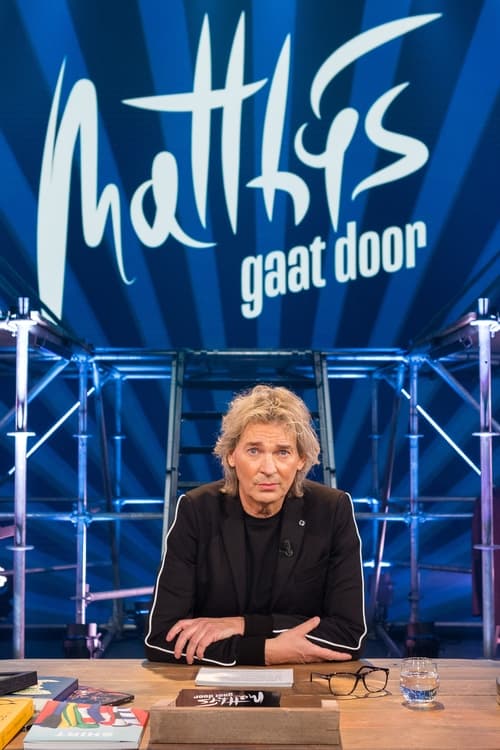
Ask Your Own Question
What is the plot?
In the opening scene of "Episode 80," Lisa is seen sitting at her kitchen table, staring blankly at a stack of bills. The camera zooms in on her furrowed brow, revealing her growing anxiety about her financial situation. She picks up her phone and scrolls through her contacts, hesitating before finally dialing her friend Mia for support. The conversation is tense; Lisa expresses her fears about losing her home, while Mia tries to reassure her, suggesting they brainstorm ways to make extra money.
The scene shifts to Lisa at her job, where she works as a waitress. The restaurant is bustling, and Lisa struggles to keep up with the orders. Her boss, Mr. Thompson, notices her distress and pulls her aside, offering her a chance to work extra shifts. Lisa, desperate for cash, agrees, despite knowing it will take a toll on her already strained health. The weight of her decision hangs heavily on her as she returns to the floor, her movements becoming more frantic.
Later that evening, Lisa meets with Mia at a local café. They discuss potential side hustles, and Mia suggests starting a small online business selling handmade crafts. Lisa is initially skeptical but begins to warm to the idea as Mia shares her own success stories. The two friends brainstorm product ideas, and Lisa's excitement grows, momentarily overshadowing her financial worries.
The next day, Lisa begins crafting items for her new business. The montage shows her working late into the night, surrounded by supplies and half-finished projects. As she creates, her emotions fluctuate between hope and frustration. She struggles with self-doubt, questioning whether anyone would actually buy her products. This internal conflict is palpable as she glances at her phone, checking for notifications but finding none.
In a pivotal scene, Lisa attends a local craft fair to showcase her products for the first time. The atmosphere is vibrant, filled with colorful booths and enthusiastic shoppers. Lisa's nerves are evident as she sets up her display, her hands shaking slightly. When the fair opens, she watches as people pass by, feeling invisible. However, a few customers stop to admire her work, and she experiences a rush of validation. The moment is bittersweet, as she realizes that her success hinges on the opinions of strangers.
As the day progresses, Lisa makes her first sale, and her joy is infectious. She calls Mia to share the news, her voice filled with excitement. However, the high is short-lived when she overhears a group of women nearby criticizing her work. The sting of their words hits her hard, and she retreats to a quieter corner, battling feelings of inadequacy. This moment of vulnerability deepens her resolve to prove herself, igniting a fire within her.
The episode takes a dramatic turn when Lisa receives a call from her landlord, informing her that her rent is due soon and that she must pay or face eviction. The weight of this news crashes down on her, and she feels the walls closing in. In a moment of desperation, she decides to take a risk and invest the little money she has left into more supplies for her business, believing it to be her only chance to turn things around.
In the final act, Lisa hosts a small launch party at her home, inviting friends and family to showcase her crafts. The atmosphere is filled with laughter and support, but Lisa's anxiety simmers beneath the surface. As guests browse her products, she feels a mix of pride and fear, hoping for positive feedback. The night culminates in a heartfelt moment when Mia publicly praises Lisa's talent, encouraging others to support her. This affirmation lifts Lisa's spirits, and she begins to believe in her potential.
The episode concludes with Lisa reflecting on her journey, standing in front of her craft table, now filled with completed projects. She smiles softly, a sense of determination in her eyes as she contemplates the challenges ahead. The camera pulls back, leaving her in a moment of quiet resolve, ready to face whatever comes next.
What is the ending?
In the ending of "Lisa," Season 2, Episode 80, Lisa confronts her past and makes a pivotal decision about her future. The episode culminates in a tense confrontation with her estranged father, leading to a moment of emotional catharsis. Lisa ultimately chooses to embrace her independence, leaving behind the toxic relationships that have held her back. The episode closes with her stepping into a new chapter of her life, symbolizing hope and renewal.
As the episode unfolds, the scene opens in a dimly lit room where Lisa sits alone, her expression a mix of determination and anxiety. The weight of her past looms heavily over her, and the camera captures the flickering shadows that dance across the walls, mirroring her internal struggle. She reflects on her tumultuous relationship with her father, the man who abandoned her during her childhood. The emotional turmoil is palpable as she recalls the hurtful words exchanged in their last encounter.
The scene shifts to a bustling café where Lisa meets her close friend, Mia. The atmosphere is vibrant, filled with laughter and chatter, contrasting sharply with Lisa's somber mood. Mia, sensing Lisa's distress, encourages her to confront her father. The dialogue is charged with emotion, revealing Lisa's deep-seated fears and insecurities. Mia's unwavering support serves as a beacon of hope, pushing Lisa to take the necessary steps toward healing.
As the day progresses, Lisa prepares for the confrontation. She stands in front of a mirror, rehearsing what she wants to say. The camera zooms in on her face, capturing the flicker of doubt in her eyes, but also the spark of resolve. The scene transitions to a tense moment as she arrives at her father's house, her heart racing. The exterior of the house is unwelcoming, with peeling paint and overgrown weeds, symbolizing the neglect of their relationship.
Inside, the atmosphere is thick with unresolved tension. Lisa's father, visibly older and burdened by regret, opens the door. Their initial exchange is fraught with awkwardness, the air heavy with unspoken words. Lisa's voice trembles as she confronts him about his abandonment, her emotions spilling over. The dialogue is raw and honest, revealing the pain that has lingered for years. Her father attempts to justify his actions, but Lisa stands firm, refusing to accept his excuses.
The climax of the episode occurs when Lisa, in a moment of vulnerability, expresses her desire for closure. Tears stream down her face as she articulates the impact of his absence on her life. The camera captures the anguish in her eyes, a powerful testament to her journey of self-discovery. Her father, moved by her words, finally acknowledges his mistakes, leading to a moment of tentative reconciliation.
However, Lisa realizes that forgiveness does not mean she must remain in his life. In a poignant decision, she chooses to walk away, symbolizing her commitment to her own well-being. The scene shifts to her leaving the house, the weight of her decision lifting as she steps into the sunlight. The camera follows her as she walks down the street, a sense of liberation washing over her.
The episode concludes with Lisa meeting Mia again, this time in a park. The sun sets in the background, casting a warm glow over the scene. Lisa shares the details of her confrontation, her voice filled with newfound strength. Mia embraces her, celebrating her courage and independence. The final shot lingers on Lisa's face, a mixture of relief and hope, as she looks toward the future, ready to embrace whatever comes next.
In this ending, Lisa's journey reflects themes of self-empowerment and the importance of breaking free from toxic relationships. Each character's fate is intertwined with Lisa's growth; her father is left to grapple with his choices, while Mia remains a steadfast ally in Lisa's life, symbolizing the power of friendship and support.
Is there a post-credit scene?
In "Episode 80" of the TV show "Lisa," there is indeed a post-credit scene that adds an intriguing layer to the episode's narrative.
As the credits roll, the screen fades to black before transitioning to a dimly lit room filled with shadows. The camera slowly pans across the space, revealing a cluttered desk strewn with papers and photographs. The atmosphere is tense, underscored by a low, suspenseful score that heightens the sense of mystery.
In the center of the room, a figure is seen hunched over the desk, their face obscured by the dim light. As the camera draws closer, the figure lifts a photograph, revealing it to be a picture of Lisa, taken from a distance during a pivotal moment in the episode. The figure's hand trembles slightly, indicating a mix of anxiety and determination.
Suddenly, the figure speaks, their voice low and gravelly, "It's time to make a move." This line is delivered with a sense of urgency, hinting at a looming confrontation or a significant plot twist that could impact Lisa's journey in the upcoming episodes.
The scene cuts to black again, leaving viewers with a lingering sense of anticipation and curiosity about who this figure is and how they will intersect with Lisa's story. The post-credit scene effectively sets the stage for future developments, ensuring that the audience is left eager for what comes next.
How does Lisa's relationship with her best friend evolve in this episode?
Throughout Episode 80, Lisa's relationship with her best friend is tested as they navigate a misunderstanding that arises from a secret Lisa has been keeping. The tension escalates, leading to a heartfelt confrontation where both characters express their fears of losing each other, ultimately strengthening their bond.
What significant event occurs between Lisa and her estranged father in this episode?
In Episode 80, Lisa confronts her estranged father during a family gathering, leading to an emotionally charged exchange where unresolved feelings of abandonment and betrayal surface. This pivotal moment forces both characters to confront their past and the impact it has had on their lives.
What role does the new character introduced in this episode play in Lisa's life?
A new character, a mentor figure, is introduced in Episode 80, who provides Lisa with guidance and support as she grapples with her identity and future aspirations. This character challenges Lisa to step out of her comfort zone, pushing her to pursue her dreams more fiercely.
What internal conflict does Lisa face regarding her career choices in this episode?
In Episode 80, Lisa experiences a significant internal conflict about her career path as she receives an unexpected job offer that conflicts with her personal values. This dilemma forces her to weigh her ambitions against her principles, leading to a moment of self-discovery.
How does the episode explore Lisa's emotional state after a recent breakup?
Following a recent breakup, Episode 80 delves deep into Lisa's emotional turmoil. The episode portrays her struggles with loneliness and self-doubt, showcasing her journey through grief and the process of healing as she learns to rediscover her sense of self outside of the relationship.
Is this family friendly?
In "Episode 80" of the TV show "Lisa," there are several elements that may be considered potentially objectionable or upsetting for children or sensitive viewers.
-
Emotional Conflict: The episode features intense emotional scenes where characters experience significant personal struggles, which may be distressing for younger audiences.
-
Family Tension: There are moments of conflict between family members that could be uncomfortable, showcasing arguments or misunderstandings that might resonate negatively with sensitive viewers.
-
Themes of Loss: The episode touches on themes of loss and grief, which could be heavy for children or those who have recently experienced similar feelings.
-
Mature Discussions: Some conversations may include mature themes or topics that could be confusing or inappropriate for younger viewers.
-
Visuals of Distress: There are scenes that depict characters in distressing situations, which might be visually upsetting.
These elements contribute to a narrative that, while rich in emotional depth, may not be suitable for all audiences, particularly younger children or those sensitive to such themes.

































